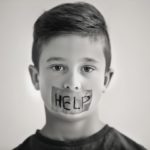[box]
Women’s Hour Discusses Dismisses Male Victims of Partner Violence
Host Jane Garvey prefaced the discussion on the issue of male victims of domestic violence by repeating rhetoric which has previously been disproved; the claim that women and girls are statistically more likely to be victims of domestic violence. Her guest, Jane Keeper, provided an explanation of how that rhetoric has been kept alive by women’s advocates in the face of statistical evidence against it.
They simply dismiss some types of abuse as irrelevant, not worth counting as abuse.
What it does is it counts incidents of somebody in the household being abusive or violent to somebody else, so if your stepdad’s abusing you, if two brothers have had a fight, or anyone else in your household’s had a dispute with anyone else, all of that wrapped up together, together with what most of us would consider to be domestic violence. It then counts what it calls incidents. An incident might be a slap, so somebody might say… uh, a husband might say, “Yes, my wife slapped me last year,” just the same as it counts attempted murder…
-Jane Keeper, directer of operations, Refuge
Translation: If we can consider the incident minor, it’s not abuse. What if Jane’s statement were just a little bit different, say, referring the words “husband” and “wife?” Would abuse victim’s advocates still think a slap doesn’t count as abuse?
Jane went on to cite the 5 incident standard as flawed, giving the existence of long term abuse as her reason, thus supporting the mantra “women have it worse” as an excuse for ignoring male victims.
The women went on to continue emphasizing attention to female victims, claiming that domestic violence differs from abuse based on context and impact, again using marginalization to excuse abuse that isn’t extreme, and indicating by insinuation that this makes women the more common victims.
Only after that marginalizing introduction, was Ian, the male victim, permitted to tell his story, which directly contradicted the women’s statements about the nature and scope of violence against men.
My partner had manipulated and fractured relationships with friends and family which became… resulted in me becoming isolated, and at that precise moment, that’s when the violence started, when she knew that she had isolated me from friends and family.
Asked about the first incident, Ian responded,
The first assault was basically to hit me across the face with a hoover, and my head was like a rounders ball, and she split my cheek up, and there was complete shock, fear, no apology; for her, life just carried on as if it never happened.
That’s a hell of a slap in the face!
Ian went on to explain that he’d had no one to turn to for help, and was totally controlled by his partner, his injuries ignored by everyone around him. Isolated and without any resource, he’d endured the abuse until 14 months later, when a neighbor anonymously tipped the police off to his situation. He challenged the statements made by female guests at the beginning of the show.
The information is out there. I’ve obtained information from a number of police forces, under freedom of information requests, and it ranges between 1 in 4 and 1 in 5 victims are men.
The women, went on to admit that, due to the difficulty of obtaining assistance, male victimization must be under-reported, yet continued throughout the video to try to downplay female perpetration and male victimization, and turn the conversation back to emphasis on female victims, even in reply to Ian’s stated concern that downplaying the experiences of male victims would discourage reporting and hamper the ability of abused men to obtain assistance.
With such a nonchalant display of bias against male victims of intimate partner violence airing on BBC radio, could it be simple coincidence that BBC management’s mishandling of a 2012 sexual harassment complaint by BBC Journalist Russel Joslin led to his suicide?
[/box]

